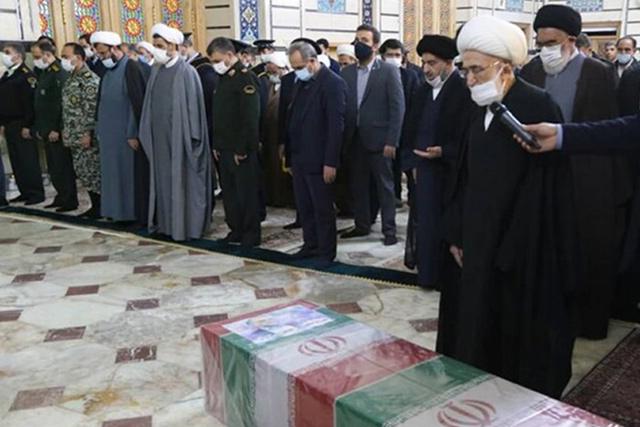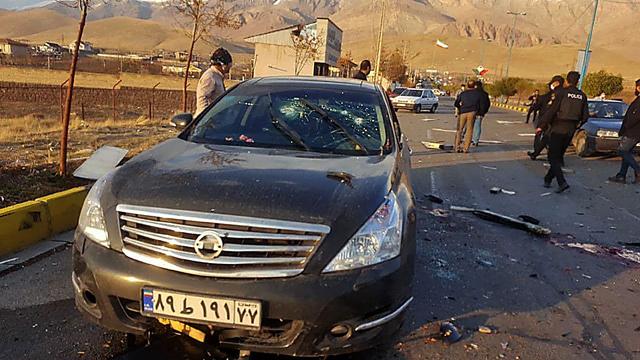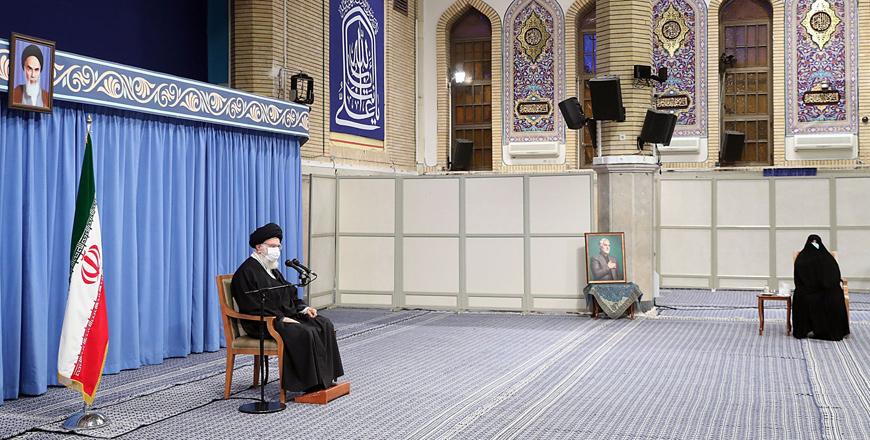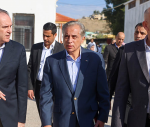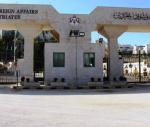You are here
Iran says Israel, exiled group killed scientist in complex operation
By AFP - Dec 01,2020 - Last updated at Dec 01,2020
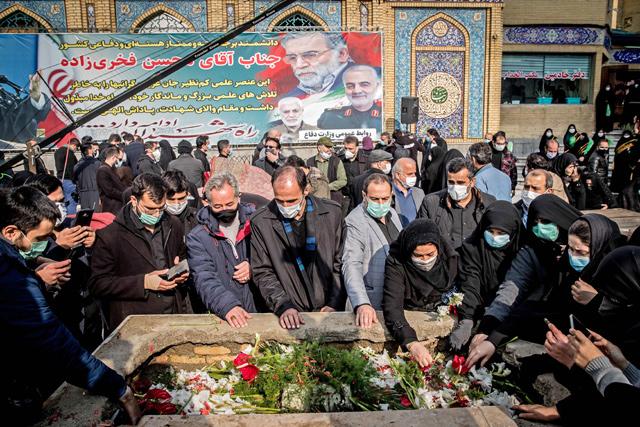
Iranian mourners attend the burial ceremony of slain nuclear scientist Mohsen Fakhrizadeh at Imamzadeh Saleh shrine in northern Tehran on Monday (AFP photo)
TEHRAN — Iran said Israel and an exiled opposition group used new and "complex" methods to assassinate its leading nuclear scientist, as it buried him on Monday in a funeral befitting a top "martyr".
As it laid Mohsen Fakhrizadeh — seen by Israel as the "father" of Iran's nuclear weapons programme — to rest, the Islamic republic also vowed to redouble his work.
Fakhrizadeh died on Friday after his car and bodyguards were targeted in a bomb and gun attack on a major road outside the capital, heightening tensions once more between Tehran and its foes.
Iran's top security official, Rear-Admiral Ali Shamkhani of the Supreme National Security Council, said the "operation was very complex, using electronic equipment and no one was present at the scene".
The People's Mujahedeen of Iran (MEK) were "certainly" involved, along with "the Zionist regime and the Mossad", he said, referring to the Israeli government and its spy agency.
Shamkhani's comments came in video interviews broadcast by state television and the Fars news agency.
Without citing sources, Fars itself reported the attack had been carried out with the help of "a remote-controlled automatic machinegun" mounted on a pickup truck.
Iran's President Hassan Rouhani had on Saturday accused Israel of acting as a "mercenary" for the United States by carrying out the assassination.
'Martyr'
Fakhrizadeh's funeral was attended by several high-ranking officials, including Defence Minister Amir Hatami and Revolutionary Guards commander Hossein Salami.
As the funeral got under way, a religious singer praised Fakhrizadeh and alluded to the martyrdom of Imam Hossein, the revered 7th century holy figure from whom Shiite Muslims draw inspiration.
"If our enemies had not committed this heinous crime and spilled our dear martyr's blood, he might have remained unknown," Hatami said in a speech.
“But today, he who was only an idol for... his students and colleagues, is introduced to the whole world,” he added, saying he would be an inspiration for “all who embark on the path to fight”.
“The enemies should know that this is their first defeat.”
Hatami had said after the scientist’s death that Fakhrizadeh was one of his deputies and headed the ministry’s Defence Research and Innovation Organisation, focusing on the field of “nuclear defence”.
In his speech, he said the government had decided to double the organisation’s budget to continue Fakhrizadeh’s path “vigorously”.
A large display showed a picture of Fakhrizadeh next to Iran’s supreme leader Ayatollah Ali Khamenei, as well as former top general Qassem Soleimani, who was killed in a January drone strike by the US in Baghdad.
Iran weighs retaliation
The assassination has led to demands for a strong response from Iran’s leadership and calls by some conservative lawmakers to avoid entering potential negotiations with the United States, even as the hawkish presidency of Donald Trump draws to a close.
Iran’s President Rouhani has accused Israel of acting as a US “mercenary”, blaming it for the killing of Fakhrizadeh, and supreme leader Khamenei has called for the perpetrators to be punished.
Parliament on Sunday demanded a halt to international inspections of nuclear sites in the country, a step that could prove a fatal blow to the nuclear deal the Islamic republic agreed with world powers in 2015.
The head of the Expediency Council, Mohsen Razai, hinted Iran should leave the global non-proliferation treaty.
Trump withdrew from the Iran nuclear deal in 2018 and began reimposing crippling sanctions, but US President-elect Joe Biden has promised a return to diplomacy.
Rouhani has emphasised Iran will seek its revenge for the assassination in “due time” and not be rushed into a “trap”.
The US slapped sanctions on Fakhrizadeh in 2008 for “activities and transactions that contributed to the development of Iran’s nuclear programme”.
Around a year after the US withdrew from the nuclear deal, it began gradually abandoning most of its key commitments under the agreement.
Enmity will ‘never cease’
The funeral was not open to the public in order to maintain health protocols over the novel coronavirus pandemic, the defence ministry said.
Some “say we can make the enemy not have enmity [towards us] through talking. That is not possible,” said the supreme leader’s representative at the defence ministry, Ziaodin Aghajanpour, standing next to Fakhrizadeh’s coffin.
“Why? Because the enemies are against the basis of the Islamic republic system,” he added, emphasising that Iran’s foes “will never cease their enmity”.
As part of the procession before the funeral, Fakhrizadeh’s remains were taken on Saturday and Sunday to holy Shiite shrines in the northeastern city of Mashhad and Qom in central Iran, as well as the shrine of the founder of the Islamic republic, Ruhollah Khomeini in Tehran.
The scientist’s coffin was buried at Imamzadeh Saleh, an important Shiite shrine in northern Tehran where two other slain nuclear scientists were buried in 2010 and 2011.
Related Articles
TEHRAN — Iran was weighing its response on Sunday to the killing of its top nuclear scientist, which it blames on arch-foe Israel, as his bo
TEHRAN — Iran's President Hassan Rouhani on Saturday accused arch-foe Israel of acting as a "mercenary" for the United States and seeking to
VIENNA — The remaining parties to the faltering 2015 Iran nuclear accord met Wednesday after Tehran announced plans for a new breach of the


